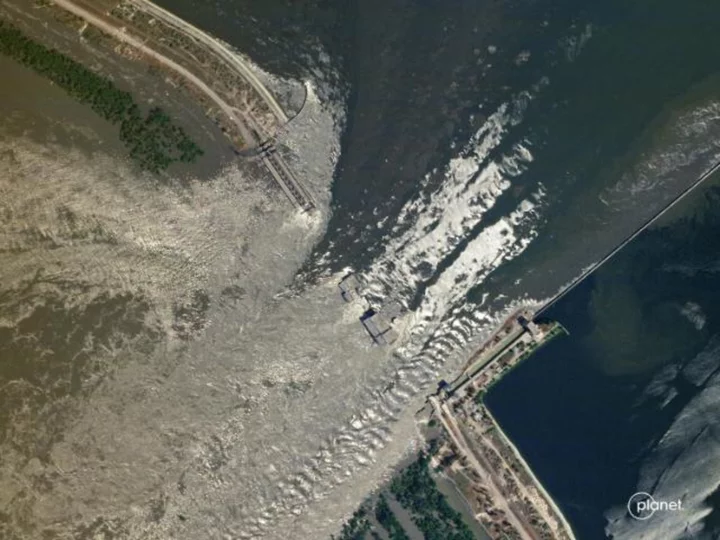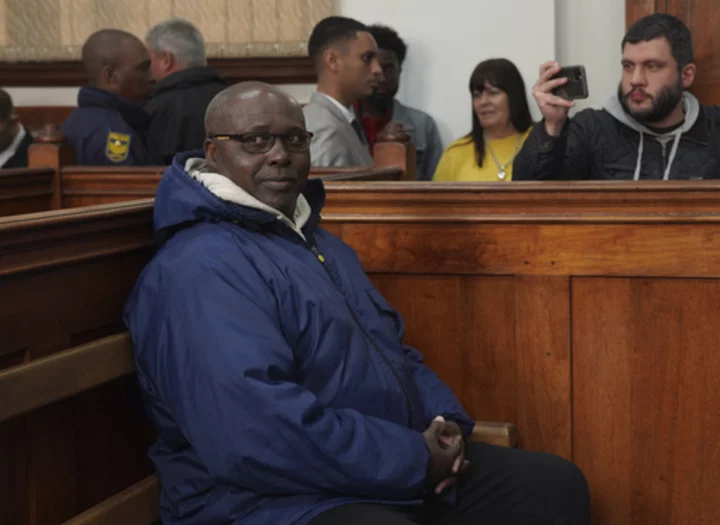
‘Worst Jeopardy! round ever': Viewers furious after all contestants fail to make money
Mayim Bialik kept throwing clues at the contestants and unfortunately, they kept missing them one after the other, with six incorrect responses in the first 15 prompts
2023-06-01 12:17

What does Marieangela King do? Elijah Blue Allman's estranged wife accuses Cher of keeping her possessions
The possessions in question include deeds to some valuable Michael Jackson artwork
2023-10-28 16:15

Randal Kolo Muani drops major hint over Eintracht Frankfurt future
Randal Kolo Muani discusses leaving Eintracht Frankfurt amid interest from Manchester United, Paris Saint-Germain and Bayern Munich.
2023-06-01 23:58

Asia shares near 4-month peak, yen falls as BOJ maintains policy
By Ankur Banerjee SINGAPORE Asian shares rose to a four-month high on Friday as U.S. economic data stoked
2023-06-16 11:59

Towns' 29 points and late scoring leads Timberwolves past Pelicans 121-120
Karl-Anthony Towns capped a 29-point performance with a running floater off the glass with 5 seconds left, and the Minnesota Timberwolves overcame a 14-point deficit in the final 7:32 to beat the New Orleans Pelicans 121-120
2023-11-19 11:28

Ukraine dam collapse serves neither side well as war enters next crucial phase
Fish swept up and dumped by flood waters drive home Ukraine's claims of Russian "ecocide" while Russian gunners attacked rescuers amid the chaos of the Nova Khakovka dam burst.
2023-06-08 19:58

Rwandan genocide suspect appears in court holding Bible after 22 years on the run
One of Rwanda’s most wanted suspect in that country's genocide has appeared in a South African courtroom holding a Bible
2023-05-26 22:55

US Army, Marine heads approved amid abortion standoff
The US Senate confirmed two generals as the new heads of the Army and Marine Corps on Thursday, filling senior military posts left open due to a lawmaker's...
2023-09-22 03:29

Pittsburgh Pirates activate outfielder Bryan Reynolds from 10-day injured list
The Pittsburgh Pirates have activated outfielder Bryan Reynolds from the 10-day injured list
2023-07-03 01:45

Ioan Gruffudd's daughter Ella Evans, 13, requests restraining order against him and his GF Bianca Wallace amid split with ex Alice
Ella Evans has also filed for civil harassment protection from Ioan Gruffudd's girlfriend Bianca Wallace
2023-06-03 06:23

Grassley releases full FBI memo with unverified claims about Hunter Biden's work in Ukraine
Republican Sen. Chuck Grassley has released an unclassified document that Republicans claim is significant in their investigation of Hunter Biden
2023-07-21 06:56

At Cannes Film Festival, Johnny Depp says 'I have no further need for Hollywood'
Appearing at the Cannes Film Festival the day after premiering his first film in three years, Johnny Depp said Wednesday that he has “no further need” for Hollywood
2023-05-17 20:26
You Might Like...

Banks behind 70% jump in greenwashing incidents in 2023 -report

Kidnappers in Haiti release US nurse and her young daughter nearly 2 weeks after their abduction

Yankees: 3 fireable offenses from Brian Cashman in the last 24 hours

Guantanamo defendant 'too damaged' to stand trial

Putin unveils Russia’s new AI strategy to rival Western advances in artificial intelligence

How the Champions League lost its spark and led to the end of an era

Denzel Washington nearly turned down The Magnificent Seven for one reason

Braves reporter rips umpire for Brian Snitker ejection in NSFW tweet
